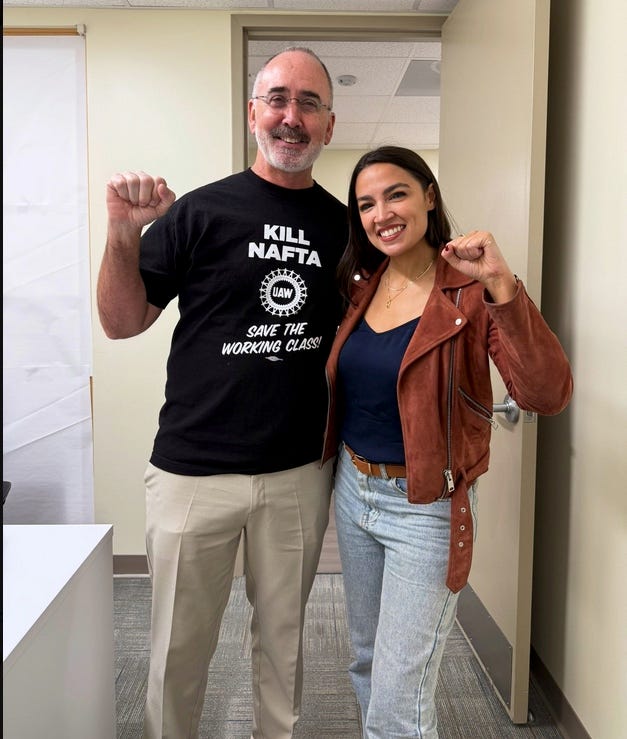Free Trade for Free Nations, Scheinmann Suggests
Tie access to the U.S. market to democratic principles

[“America has a positive role to play in advancing freedom and democracy in the rest of the world,” is one of the themes here at The Editors. I’ve been reporting that out by soliciting, from a variety of thoughtful voices, answers to this prompt:
What are the most promising, concrete, specific steps America can take over the next few years to promote freedom, democracy, and rule of law in other countries? What places and people would you focus on, what’s the case for making the efforts, and how, practically, do you get it done given the constraints imposed by the American political and fiscal landscape?
Today’s response comes from Gabriel Scheinmann. Scheinmann is the executive director of the Alexander Hamilton Society, which operates on college campuses similar to the way that the Federalist Society does at law schools, with the aim “to identify, educate, and launch young men and women into foreign policy and national security careers imbued with the Hamiltonian perspective of strong and principled American leadership in global affairs.” — Ira Stoll]
America’s most potent tool for advancing freedom, democracy, and the rule of law globally is access to its vast, lucrative market. For too long, America’s international economic policy has been theoretical, divorced from its national interest, and on auto-pilot. The U.S. economy, the largest and most dynamic in the world, can weaken authoritarian forces and strengthen democratic ones if leveraged properly.
During the Cold War, America’s economic policy was aligned with its grand strategy. The Marshall Plan, and institutions like the World Bank and IMF, were established to thwart communist subversion through economic expansion. However, since the Cold War’s end, U.S. international economic policy has floundered. The entry of authoritarian states like China and Russia into the ramparts the West had built, under the mistaken belief that economic development would foster democratic reforms, was a failed gamble. Authoritarian regimes now use their economic clout to exploit these institutions to strengthen their grip on power and undermine the freedom and rule of law of others. Global freedom has declined for 17 consecutive years, according to Freedom House.
It is time to revive Cold War economic statecraft by leveraging access to the U.S. market, specifically trade and investment, to promote human freedom: free trade for free nations, fair trade for unfree nations.
For nations that embrace these values, America could offer free and open trade. For those that don’t, the U.S. should impose tariffs and export controls, raising the cost of doing business with the American market. This approach would likely not sway hardline authoritarian regimes like China or Russia, but it could have a profound impact on countries caught in the middle—those that are neither fully democratic nor fully autocratic.
America’s leverage is significant. Companies prefer doing business in the U.S. over authoritarian regimes due to the stability and legal protections the American market offers. U.S. sanctions on Iran demonstrate how businesses prioritize access to the American economy. Furthermore, the U.S. could use indices like the Freedom House democracy score to adjust tariffs based on a nation’s democratic performance, directly tying economic incentives to political reform.
In today’s protectionist climate, this approach faces fewer constraints than one might expect. The president has broad executive authority over tariffs and export controls, enabling decisive action. Both major political parties have also shifted toward more restrictive trade policies, creating a bipartisan consensus more willing to use trade as leverage.
By tying access to the U.S. market to democratic principles, America can reclaim its role as a global champion of freedom and protect the rule of law at home. Trade remains America’s strongest nonmilitary tool for shaping the world—and we should use it wisely.
Other, earlier answers: Other, earlier answers: “Don’t Lose Any Countries” Is Elliott Abrams’s Advice, by Elliott Abrams
Counter Communist China in the U.S. and at the U.N., Ellen Bork Recommends, by Ellen Bork
Help Ukraine and Israel Prevail, Says Carl Gershman, by Carl Gershman
Resist Redefining “Democracy” as Elite Preferences, Kontorovich Says, by Eugene Kontorovich
Spend More on Defense and Less on Everything Else, Mandelbaum Warns, by Michael Mandelbaum
More Building, Less Lecturing, Mansour Recommends, by Hussein Aboubakr Mansour
Tell the World the Truth About Iran, Says Richard Perle, by Richard Perle
Let Argentina, Israel, Italy, Taiwan and Others Lead, Daniel Pipes Says, by Daniel Pipes




Another key criterion for free trade should be whether a country has a military posture against the United States. China, Russia and North Korea would be in the doghouse on this, as would others such as Iran and Houthi Yemen, which have official slogans of "Death to America". The military posture criterion has the additional benefit of weaning the United States from dependence on those who might cut us off during a crisis.
The democracy criterion could also be helpful, but sanctions against countries such as Turkey, Saudi Arabia and Hungary might not be helpful.